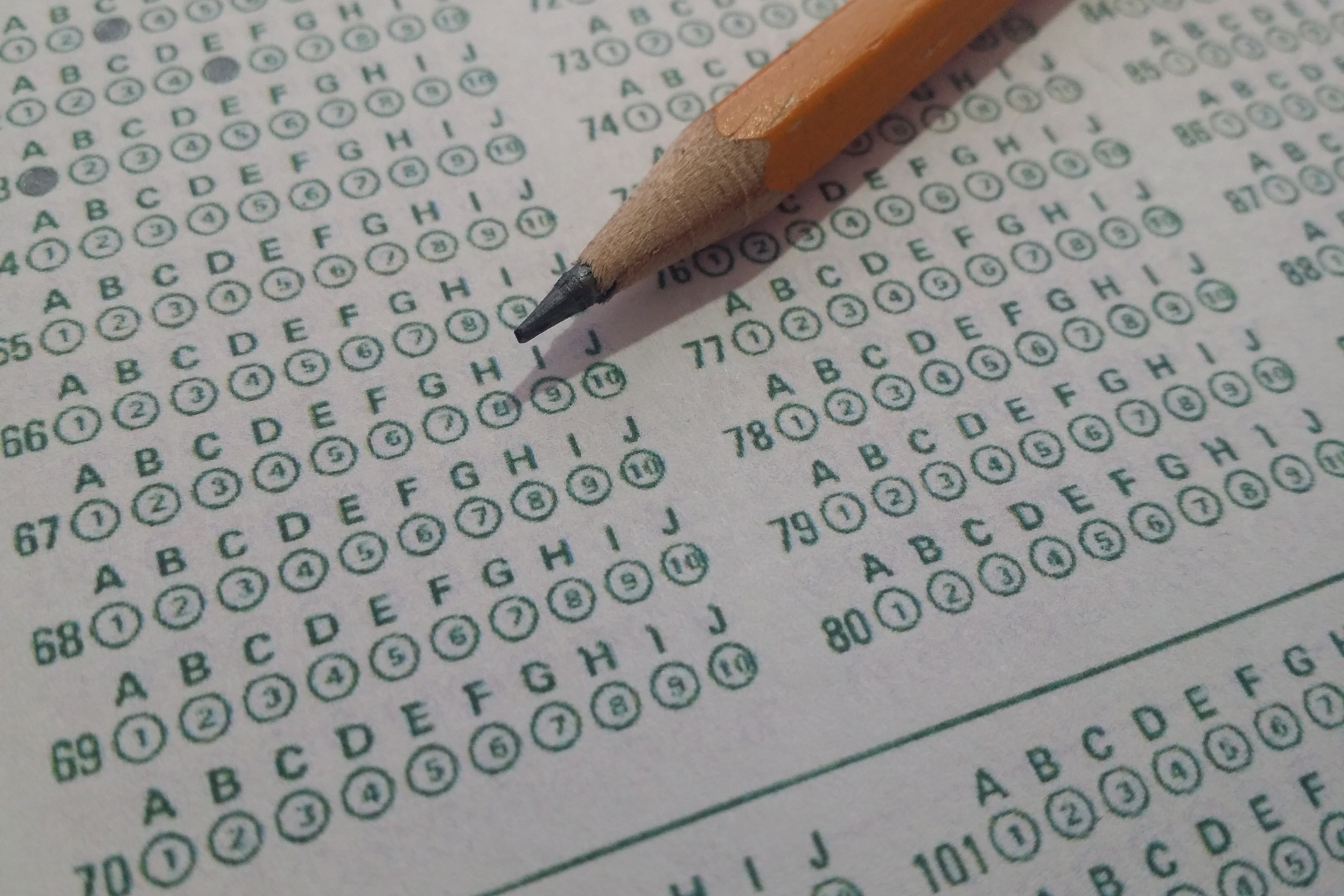
Join a free event
Learn from top coaches and industry experts in live, interactive sessions you can join for free.
Table of Contents
If you're one of the thousands of students preparing for the MCAT, you're probably already feeling the pressure. The MCAT is a serious test, and it can be overwhelming to know that your performance on this one exam could have a major impact on your future. But the truth is, managing your stress is just as important as studying the material. In fact, failing to address your stress could sabotage your efforts to do well on the MCAT.
Introduction: Understanding The Importance of Stress Management in MCAT Preparation
The first step to managing stress during MCAT prep is understanding just how important it is. Stress can have a significant impact on your mental and physical health, as well as your academic performance. It can lead to insomnia, anxiety, depression, and even physical illness. And when you're trying to learn complex material and perform on a high-stakes exam, the last thing you need is added stress.
That's why it's essential to take a comprehensive approach to preparing for the MCAT. That includes not just studying and learning the material, but also taking steps to reduce your stress levels and protect your well-being.
One effective way to manage stress during MCAT prep is to establish a routine that includes regular breaks and self-care activities. This can include taking short walks, practicing mindfulness or meditation, or engaging in a hobby or activity that you enjoy. By taking time to recharge and relax, you can reduce your stress levels and improve your overall well-being.
Another important aspect of stress management during MCAT prep is seeking support from others. This can include talking to friends or family members about your concerns, seeking guidance from a mentor or tutor, or connecting with a mental health professional if needed. Remember, you don't have to go through this process alone, and there are resources available to help you manage your stress and succeed on the MCAT.
The Effects of Stress on Your MCAT Performance: Why You Need to Manage It
It's important to understand the specific ways that stress can impact your performance on the MCAT. Stress can cause a range of physical symptoms, such as headaches, muscle tension, and gastrointestinal distress. It can also affect your cognitive functioning, making it difficult to focus, remember information, and think clearly. Furthermore, stress can create a cycle of negative thinking that feeds into anxiety and further impairs your ability to perform well on the exam.
By learning to manage your stress during MCAT prep, you can help mitigate these negative effects and give yourself the best possible chance of success.
One effective way to manage stress during MCAT prep is to incorporate relaxation techniques into your study routine. This can include activities such as meditation, deep breathing exercises, or yoga. These techniques can help calm your mind and body, reducing the physical and mental symptoms of stress.
Another important aspect of stress management is maintaining a healthy lifestyle. This includes getting enough sleep, eating a balanced diet, and engaging in regular exercise. By taking care of your physical health, you can better cope with the demands of MCAT prep and reduce the impact of stress on your performance.
Tips for Staying Calm and Focused During MCAT Preparation
Here are some tips for reducing stress and staying focused during your MCAT preparation:
- Take regular breaks
- Avoid multitasking and distractions
- Stay organized with a study schedule
- Get enough sleep
- Stay hydrated and eat healthy foods
In addition to the above tips, it's important to remember to practice self-care during your MCAT preparation. This can include activities such as exercise, meditation, or spending time with loved ones. Taking care of your mental and emotional well-being can help you stay motivated and focused throughout the studying process.
Mindfulness Techniques: How to Incorporate Them into Your MCAT Study Plan
Mindfulness techniques are a powerful tool for reducing stress and promoting focus. Mindfulness involves paying attention to the present moment, without judgment. It can include activities like meditation, deep breathing, and yoga.
To incorporate mindfulness into your MCAT study plan, try taking a 10-minute mindfulness break every hour or so. Use this time to close your eyes, take deep breaths, or do a few simple yoga poses. These activities can help lower your stress levels and improve your ability to concentrate.
Another way to incorporate mindfulness into your MCAT study plan is to practice mindful studying. This involves focusing your attention on the task at hand, without allowing your mind to wander. To do this, try to eliminate distractions, such as your phone or social media, and create a quiet study environment. Take breaks when you need them, but use them mindfully by taking a few deep breaths or doing a quick meditation exercise. By practicing mindful studying, you can improve your ability to retain information and stay focused for longer periods of time.
Yoga for MCAT Prep: Poses and Breathing Exercises to Relieve Stress
Yoga is a form of exercise that combines physical movement with mindfulness techniques like deep breathing and meditation. Yoga can be an excellent way to relieve stress during MCAT prep by releasing physical tension and calming the mind.
Consider incorporating yoga poses like child's pose, downward dog, and warrior II into your study breaks. You can also try breathing exercises like alternate nostril breathing or the 4-7-8 breathing technique to calm your mind and reduce stress.
In addition to its stress-relieving benefits, practicing yoga regularly can also improve cognitive function and memory retention. Studies have shown that yoga can increase blood flow to the brain, which can enhance focus and concentration. So, not only can yoga help you manage stress during MCAT prep, but it can also improve your overall cognitive performance.
The Power of Meditation: How It Can Help Reduce Anxiety During MCAT Prep
Meditation is a powerful tool for reducing anxiety and promoting mental clarity. It involves focusing your attention on a single point, such as your breath or a mantra. Even just a few minutes of meditation each day can help improve your ability to manage stress and maintain focus during MCAT prep.
Consider starting with guided meditations or using an app like Headspace or Calm to help you establish a regular practice. By making meditation a consistent part of your study routine, you can help reduce anxiety and improve your ability to perform well on the exam.
Eating for Stress Relief: Foods That Can Help You Stay Calm and Focused
The foods you eat can have a significant impact on your stress levels and mental performance. Foods rich in omega-3 fatty acids, like fish and nuts, can help reduce inflammation and promote brain health. Foods high in B vitamins, like leafy greens and whole grains, can also support cognitive function and reduce stress.
Try incorporating these stress-relieving foods into your diet during MCAT prep:
- Fatty fish like salmon
- Nuts and seeds
- Whole grains like brown rice and quinoa
- Leafy greens like spinach and kale
- Fruits like blueberries and oranges
Exercise and MCAT Prep: How Physical Activity Can Help Reduce Stress
Regular physical activity is a powerful way to reduce stress and improve mental health. Exercise releases endorphins, which are natural mood boosters that can help counteract the effects of stress.
Consider incorporating 30 minutes of moderate exercise, such as jogging or biking, into your daily routine. You can also try low-impact activities like yoga or swimming to help reduce physical tension and promote relaxation.
Time Management Techniques for a Less Stressful MCAT Study Routine
Effective time management is another critical tool for reducing stress during MCAT prep. By creating a study schedule and sticking to it, you can help ensure that you're making progress without getting overwhelmed.
Consider following the Pomodoro Technique, which involves working for 25-minute intervals followed by 5-minute breaks. This approach can help improve your productivity and keep you motivated as you work through the MCAT material.
Creating a Relaxing Study Environment: Tips for Designing Your Ideal Workspace
The environment in which you study can have a significant impact on your stress levels and learning experience. By creating a relaxing study environment, you can help promote focus and reduce anxiety.
Consider these tips for designing your ideal workspace:
- Find a quiet location
- Eliminate distractions
- Make sure your desk and chair are comfortable
- Ensure adequate lighting and ventilation
- Use calming decor, such as plants or candles
Dealing with Test Anxiety on Exam Day: Strategies for Staying Calm and Confident
Even with effective stress management techniques in place, it's normal to experience some anxiety on exam day. But there are strategies you can use to help stay calm and confident.
Consider these tips:
- Take deep breaths and visualize success
- Arrive early and give yourself plenty of time
- Stay hydrated and nourished
- Avoid talking to other anxious test-takers
- Focus on the present moment and take breaks as needed
Conclusion: Implementing Stress Management Techniques to Maximize Your MCAT Performance
By incorporating a comprehensive stress management plan into your MCAT preparation, you can help improve your mental and physical well-being, while also boosting your learning and performance. Use these tips to develop a personalized stress management plan that works for you. By taking care of yourself, you'll be better equipped to succeed on the exam and achieve your academic goals.
Browse hundreds of expert coaches
Leland coaches have helped thousands of people achieve their goals. A dedicated mentor can make all the difference.













